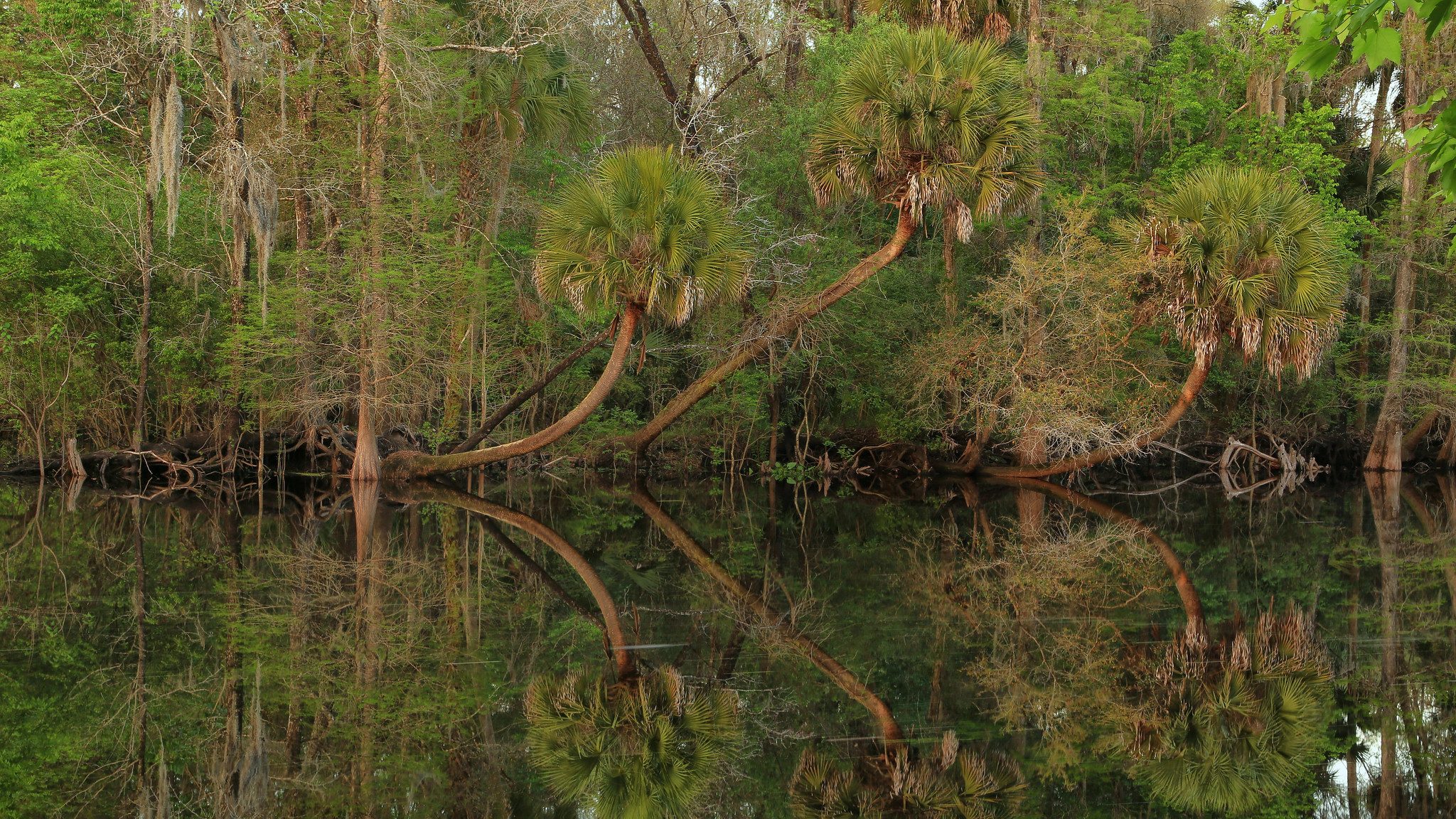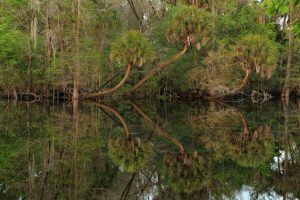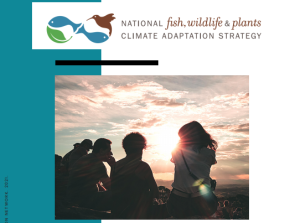April 2021 Newsletter

April 2021 Newsletter
Welcome to the Southeast Climate Adaptation Science Center’s April 2021 Newsletter.
For news and upcoming events related to the Southeast Climate Adaptation Science Center,
subscribe to our monthly newsletter.
SE CASC News | Resources | Publications | Tribal News | Partner News | Webinars | Events | Opportunities

Southeast Climate Adaptation Science Center News

Image Credit: Alan Cressler
Join us for the final Spring SE CASC Science Seminar on April 20 at 11am ET. Dr. James Cronin will present Strategic Habitat Conservation for the Brown Pelican: Estimating Habitat Objectives and Management Scenario Efficiencies. Learn more and register here.
The 2020-21 Global Change Fellows hosted the final Spring Global Change Seminar, Intergenerational Learning: How Children are Changing Past Generations’ Environmental Perceptions on April 13, 2021. View a summary and recording of the discussion.
On March 16, SE CASC Research Ecologist, Adam Terando presented the second SE CASC Spring Science Seminar, Using Information From Global Climate Models to Inform Policymaking & Natural Resource Decision Making. View a summary and recording of the presentation.
Learn more about some of our 2020-21 Global Change Fellows in these Researcher Spotlights: Samantha Jordt, Jin Bai, Hemant Kumar.
Meet the newest member of the SE CASC team, Research Coordinator Kristen Donahue.
SE CASC Researcher, Mike Osland was lead author and SE CASC Research Ecologist, Adam Terando part of the author team of Tropicalization of temperate ecosystems in North America: The northward range expansion of tropical organisms in response to warming winter temperatures, which identifies important ecological transformations driven by changes in climate extremes as well as research gaps. Learn more.
Join SE CASC Program Manager, Cari Furiness and the SE CASC Coastal Resilience Working Group at a May 12 session at the Carolinas Climate Resilience Conference.
The National Climate Adaptation Science Center released the 2020 Annual CASC Summary. This Story Map creatively summarizes the science, partnerships, capacity building, and additional resources produced by the CASC network in FY2020.
2020-21 Global Change Fellow, Megan Johnson received a Science to Action Fellowship. She also won an Outstanding Student Presentation Award at the 2020 AGU conference.
Check out this list of virtual events to celebrate Earth Day on April 22, 2021.
Assistant University Director, Aranzazu Lascurain discussed films about pollution and its effects on climate for the NCSU Libraries A/V Geeks series. View a recording.
2018-2019 Global Change Fellow, Dol Raj Chalise was lead author and SE CASC Faculty Affiliate, Sankar Arumugam was co-author of Dams and Climate Interact to Alter River Flow Regimes Across the United States. Learn more.
Note the new Department of Interior priorities.
SE CASC staff and Faculty Affiliates presented at the 2021 NCSU University Research Symposium. This year’s virtual conference theme was Climate Change and Resilience. Learn more.
SE CASC Researcher, Jared Bowden co-authored Projecting changes in extreme rainfall from three tropical cyclones using the design-rainfall approach, which uses a design rainfall approach to investigate plausible changes in rainfall for hurricanes near the end of the century. Learn more.
Faculty Affiliate, Jordan Kern details vulnerabilities to the electricity grid due to climate change in this NCSU College of Natural Resources news feature.
Applications are now being accepted to host the Midwest Climate Adaptation Science Center. Proposals are due here by June 14, 2021 at 4 PM EDT.
2020-21 Global Change Fellow, Rebecca Asser presented in the Indigenous Research Governance panel at the 2021 We Still Remain conference.
2012-2013 Global Change Fellow, Adrienne Wootten and 2016-2017 Fellow, Elsita Kiekebush were co-authors of Assessing the Impact of an Online Climate Science Community: The Early Career Climate Forum
Faculty Affiliate, Ben Reading was featured in a recent issue of Coastwatch Magazine. Learn more.
Conservation Corridor: Conservation strategies in the face of climate change.
Resources
FEATURED RESOURCE

Advancing the National Fish, Wildlife, and Plants Climate Adaptation Strategy into a New Decade
The Association of Fish and Wildlife Agency’s National Fish, Wildlife, and Plants Climate Adaptation Strategy was published in 2012 and aimed to aid natural resource managers, legislators, and other decision makers in taking steps toward climate change adaptation. The newest report, published in 2021, was designed to outline the current understanding of climate adaptation science, assess the originally outlined strategy goals, and to highlight management recommendations moving forward. AFWA has created General Overview, Indigenous Knowledges, and Management Recommendations to summarize the report’s main takeaways.
Read the full report.
Phenology Trail Dashboards: Connecting Wildlife Refuges and Partners. The U.S. Fish and Wildlife Service and National Wildlife Refuge System have collaborated with the USA National Phenology Network’s Nature’s Notebook program to monitor phenology across the National Refuge System network. Learn more.
The Cost of Climate: America’s Growing Flood Risk. This report summarizes First Street Foundation’s evaluation of the financial impact of flood risks in America. The report and associated web tool provides a state-by-state overview of how the dangers associated with flooding are expected to worsen in a changing climate. Learn more.
Global Change Research Needs and Opportunities for 2022-2031. This report by the National Academies of Sciences, Engineering, and Medicine provides a roadmap for advancing climate adaptation research needs over the next decade. Learn more.
The Living Landscapes Project. This NASA-funded project aims to provide educational resources that integrate traditional knowledge about the climate with current climate science research. Learn more.
Covering Your Climate: The South. This special report by the Society of Environmental Journalists’ special report details anticipated impacts, efforts to mitigate them and any plans to adapt to climate change in the Southeast. Learn more.
In the Media
Fire as Medicine: Learning from Native American Fire Stewardship. Eos
Seagrass Is A Vital Weapon Against Climate Change, But We’re Killing It. HuffPost
Tiny Town, Big Decision: What Are We Willing to Pay to Fight the Rising Sea? New York Times
Tribes Could Play a Crucial Role in Achieving a Bold New Conservation Goal. Audubon Magazine
Your Weather Forecast Update: Warmer Climate Will Be The New ‘Normal’. NPR
Notable Publications
Protecting the global ocean for biodiversity, food and climate. Marine protected areas are designated areas where extractive and destructive activities are banned. These designations are an effective strategy to conserve and restore ocean biodiversity and important ecosystem services, however, only 2.7% of the ocean is currently under a highly protected status. A group of researchers have created a conservation planning framework that prioritizes highly protected marine protected areas to achieve the three goals of biodiversity protection, food provision and carbon storage. Researchers emphasize the need for international cooperation to achieve maximum benefits for these three outlined goals. Link to article.
Quantifying Uncertainty in Exposure to Coastal Hazards Associated with Both Climate Change and Adaptation Strategies: A U.S. Pacific Northwest Alternative Coastal Futures Analysis. Coastal communities face increasing risk from sea-level rise and extreme storms, but recent research suggests that the level of risk will be more closely tied to policy decisions regarding development than the conditions associated with climate change. Researchers developed a modeling platform that provides a scenario-based framework for examining interactions between human and natural systems across a landscape to explore strategies to reduce coastal hazards associated with climate change. Tillamook County, Oregon was used as a study site to assess impacts of variable sea-level rise projections through the end of the century. Additionally, adaptation management decisions and policies were modeled to assess variability in possible human responses. Link to article.
Role of wetlands in reducing structural loss is highly dependent on characteristics of storms and local wetland and structure conditions. Hurricane Sandy brought historic flooding and tremendous structural damage to coastal communities in New York, New Jersey, and Connecticut. Tide and wave data collected from NOAA and the National Data Buoy Center, along with USGS barometric pressure data has allowed for researchers to understand the coastal surge-wave-tide dynamics and the role of wetlands in buffering flood and wave during extreme storm events in this region. A regression model was created to analyze the reduction in structural damage by percentage of wetland cover for Sandy, a hypothetical storm, and the 1% chance annual chance flood event which can be used to help inform wetland restoration planning in coastal communities. Link to article.
Seasonality, Intensity, and Duration of Rainfall Extremes Change in a Warmer Climate. Journal Abstract: Precipitation extremes are expected to intensify under climate change with consequent impacts in flooding and ecosystem functioning. Here we use station data and high‐resolution simulations from the WRF convection permitting climate model (∼4 km, 1 h) over the US to assess future changes in hourly precipitation extremes. It is demonstrated that hourly precipitation extremes and storm depths are expected to intensify under climate change and what is now a 20‐year rainfall will become a 7‐year rainfall on average for ∼ 75% of gridpoints over the US. This intensification is mostly expressed as an increase in rainfall tail heaviness. Statistically significant changes in the seasonality and duration of rainfall extremes are also exhibited over ∼ 95% of the domain. Our results suggest more non‐linear future precipitation extremes with shorter spell duration that are distributed more uniformly throughout the year. Link to article.

Tribal News
Visit USET Climate Change Headlines for updates on information regarding climate science events, funding opportunities, best practices, and highlights from across the USET region.
The Network for Landscape Conservation has announced a request for proposals for the 2021 funding round of the Landscape Conservation Catalyst Fund. The network encourages Indigenous peoples, organizations, and communities to apply. Proposals are due by April 23. More information.
NW CASC is co-sponsoring a webinar, Cultural Burning, Collaborative Fire Research and Management: Approaches for Respectfully Partnering with Tribes on Apr. 27, 1 pm ET. More information.
SE and NE CASC Tribal Climate Science Liaison, Casey Thornbrugh will present, along with liaisons from other CASCs, in Navigating the Climate Adaptation Science Centers: A National Network of Climate Adaptation Support for Native Nations. This webinar is hosted by the National Park Service as part of a larger series that promotes dialogue on climate change issues of importance to Tribal Citizens and Nations. The webinar is scheduled for April 28 at 1 pm ET. Register here.
A recording is now available from the NCSU 2021 Buchdahl Lecture on Indigenous Science and Technology Studies, Governance, and Decolonization, featuring a presentation by Dr. Kimberly TallBear of the University of Alberta. More information.
The first webinar in the Introduction to the Rivercane Gathering Webinar Series was held on February 25, 2021. A recording of the presentation has been made available here.
University of Wisconsin Sea Grant Institute released a new episode of their “Introduced” podcast, titled “Becoming Invasive.” The episode features members of the team that developed the Tribal Climate Adaptation Menu, including Midwest CASC Tribal Climate Science Liaison, Sara Smith. Listen here.

Regional Partner News
National Park Service: Ecological Risk Assessment of Managed Relocation as a Climate Change Adaptation Strategy
National Wildlife Foundation: Safe Spaces Initiative
NIDIS: Southeast Climate Update + Tornado Climatology and Webinar Recap
NOAA Climate.gov: Climate change is probably increasing the intensity of tropical cyclones
NRCS: Invests $28 Million in New Projects to Help Restore Lost Wetland Functions, Benefits on Agricultural Landscapes

Webinars
Find more upcoming events in our calendar.
April 20 | 11am – 12pm | Strategic Habitat Conservation for the Brown Pelican: Estimating Habitat Objectives and Management Scenario Efficiencies
April 21 | 12pm – 1pm | Understanding how members of the U.S. public access, share, & interpret changing forecast information: tropical cyclone threats
April 22 | 3:30pm – 4:30pm | Geospatial Forum with Dr. Sarah Gergel
April 22 | 4pm – 5pm | Kid Power – How North Carolina Kids Took On Marine Debris
April 28 | 1pm – 2pm | Navigating the Climate Adaptation Science Centers: A National Network of Climate Adaptation Support for Native Nations
April 29 | 1pm – 2pm | The “Why” Behind 30×30: The State of the Science on Marine Protected Area Benefits
May 5 | 12:30pm – 2pm | Indigenous Knowledge & Western Science: Collaboration, Relationship, and Climate Solutions
May 6 | 9am – 10am | Climate and Conservation Coffee
May 6 | 1pm – 2pm | Planning for 30×30 in the US: Assessing Protection in US Waters
May 11 | 10am – 11am | Southeast Climate Monthly Webinar
Upcoming Events
April 26 – 28 | Nobel Prize Summit – Our Planet, Our Future | Virtual
May 6 | Using Soil Moisture Information to Better Understand and Predict Wildfire Danger: A Symposium for Researchers and Fire Managers | Virtual
June 22 – 25 | At What Point Managed Retreat? Resilience, Relocation and Climate Justice | Virtual

Opportunities
Student Announcements
Gulf Research Program is seeking applications for the 2021-2023 Early Career Research Fellowship Environmental Protection and Stewardship track. Apply here by May 5.
Association of Healthcare Journalists is accepting applications for the National Science-Health-Environment Reporting Fellowship. Apply here by May 10.
Conservation International is seeking a current student or recent graduate for a Climate Adaptation Science Internship. Apply here.
Hiring Announcements
National Center for Atmospheric Research is accepting applications for a Program Specialist of the Cooperative Programs for the Advancement of Earth System Science. Apply here.
Southeast Coastal Ocean Observing Regional Association is seeking a Contractor for Program Coordinator Services. Apply here by April 21.
NASA Goddard Space Flight center is seeking a Postdoctoral Research Associate to investigate imaging spectroscopy and plant functional traits. More information.
Research Grants
Network for Landscape Conservation has announced a request for proposals for the 2021 funding round of the Landscape Conservation Catalyst Fund. Proposals can be submitted here until April 23.
Wildlife Conservation Society is accepting applications for funding through the Climate Adaptation Fund. Pre-proposals can be submitted here until April 28.
U.S. EPA is accepting applications for the Environmental Justice Collaborative Problem-Solving grants program. Apply here by May 7.
U.S. EPA is accepting applications for the Environmental Justice Small Grants Program. Apply here by May 7.
- Categories:


